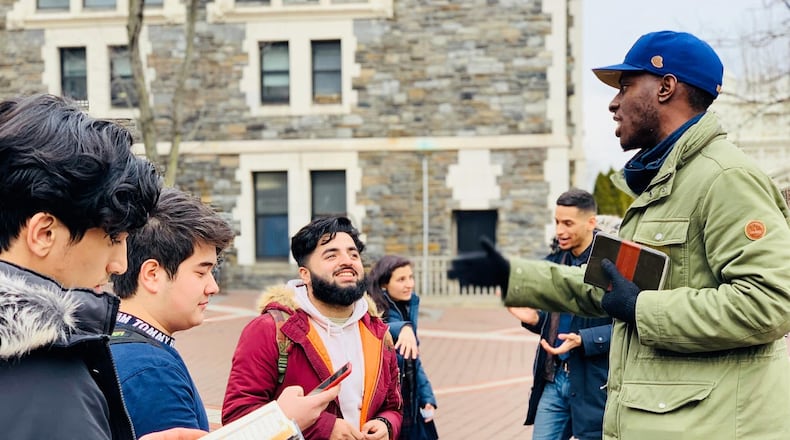The U.S. Supreme Court will take up a dispute between two Georgia Gwinnett College students and campus administrators over Christian evangelism on campus.
The conflict began in July 2016 when Georgia Gwinnett junior Chike Uzuegbunam distributed leaflets sharing his Christian faith in an outdoor plaza on the Lawrenceville campus. A college official stopped him, saying school policy required Uzuegbunam to ask for permission to speak three days in advance and confined him to only two areas on campus. At the time, Georgia Gwinnett College offered two “free speech expression” areas.
After going through the permit process, Uzuegbunam said campus police told him he couldn’t speak in the free speech zone any longer because someone had complained. “College officials didn’t really care about where I was standing; they just didn’t like what I was saying. So, they invoked these policies to silence me,” said Uzuegbunam in a conference call Friday.
In December 2016, he filed a lawsuit in U.S. District Court in Atlanta against the college, arguing his free speech rights had been violated. Another student, Joseph Bradford, who also wanted to preach on campus, joined the case as a plaintiff.
>> RELATED: Student 'evangelizing' sparks lawsuit against Gwinnett college
In 2018, a federal court judge dismissed the suit, saying Georgia Gwinnett had resolved the main issues that fueled the legal challenge. The judge agreed with the college’s motion to dismiss, noting it had changed its campus speech policy to make it easier for students, guest speakers and organizations to speak on campus. The ruling was upheld on appeal in 2019.
>> RELATED: Judge dismisses campus speech lawsuit against Georgia college
The attorney for the students says the courts let the college off the hook. “Government officials must be held responsible for enacting and enforcing policies that trample students’ constitutionally protected freedoms. If they get off scot-free, they or others can simply do it again,” said attorney John Bursch of the Christian-based Alliance Defending Freedom, which is representing the students.
“Now, it looks like Chike was wrong because his lawsuit was dismissed,” Bursch said in a media call Friday, noting that Uzuegbunam is now turning to the U.S. Supreme Court for vindication. “The whole world should know his rights were violated.”
The Supreme Court will begin its next term in October, but no date has been set for this case.
About the Author
Keep Reading
The Latest
Featured


